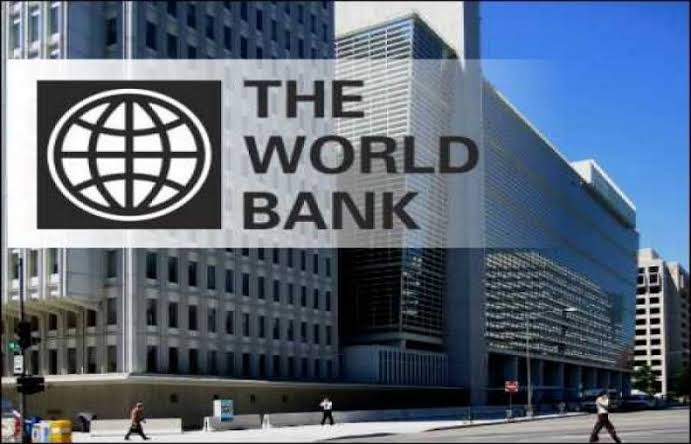By Asmau Ahmad
The World Bank has announced actions it intended to take as part of a comprehensive, global response to the ongoing food security crisis over the next 15 months.
This is contained in a statement obtained by Health Reporters from the World Bank website.
The statement said $30 billion was available in existing and new projects for implementation in areas such as agriculture, nutrition, social protection, water and irrigation.
It said the financing would include efforts to encourage food and fertiliser production, enhance food systems, facilitate greater trade, and support vulnerable households and producers.
The statement quoted World Bank Group President, David Malpass as saying “Food price increases are having devastating effects on the poorest and most vulnerable.
“To inform and stabilise markets, it is critical that countries make clear statements now of future output increases in response to Russia’s invasion of Ukraine.
“Countries should make concerted efforts to increase the supply of energy and fertiliser, help farmers increase plantings and crop yields, and remove policies that block exports and imports, divert food to biofuel, or encourage unnecessary storage,” it said.
It added that the World Bank was working with countries on the preparation of 12 billion dollars of new projects for the next 15 months to respond to the food security crisis.
It said these projects were expected to support agriculture and social protection to cushion the effects of higher food prices, water and irrigation projects.
The statement said majority of resources would be going to Africa and the Middle East, Eastern Europe, Central Asia, and South Asia.
“In addition, the World Bank’s existing portfolio includes undisbursed balances of $18.7 billion in projects with direct links to food and nutrition security issues, covering agriculture and natural resources, nutrition, social protection, and other sectors.
“Altogether, this will amount to over 30 billion dollars available for implementation to address food insecurity over the next 15 months.
“This response will draw on the full range of bank financing instruments and be complemented by analytical work,” it further said.
According to it, the global response will address four priorities which include, support production and producers, facilitate increased trade, support vulnerable households, and invest in sustainable food and nutrition security.
On support and production and producers, it said actions must be taken to enhance next season’s production by removing input trade barriers.
Also, by focusing on more efficient use of fertilisers, and repurposing public policies and expenditures to better support farmers and output.
On the priority to facilitate increased trade, it said: “Build international consensus (G7, G20, others) and commitment to avoid export restrictions that increase global food prices and import restrictions that discourage production in developing countries.”
In supporting vulnerable households, the statement noted that countries should scale up targeted, nutrition-sensitive social protection programmes and replenish early-response financing mechanisms.
On investing in sustainable food and nutrition security, it said countries should strengthen food systems to make them more resilient to rising risks (conflict, climate, pests, diseases), trade disruptions and economic shocks.
The statement added that countries should also balance immediate/short-term needs with long-term investments.
It said The World Bank gained extensive experience in response to the 2007-2008 global food price crisis through the temporary Global Food Crisis Response Program (GFRP).
The programme received donor contributions and channelled funds to 49 affected countries through 100 projects.
Since then, it noted, the Bank had built up new tools dedicated to responding to food security crises, including the IDA Crisis Response Window.
The statement added that the World Bank also hosted the Global Agriculture and Food Security Program (GAFSP).
It explained that GAFSP is an existing financial intermediary fund dedicated to improving food security in low-income countries, which could be replenished to help fund the response to the current global food crisis.


